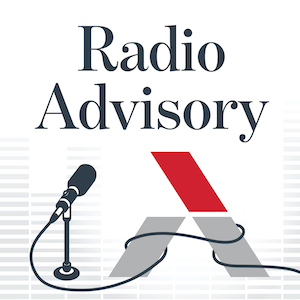Auto logout in seconds.
Continue LogoutMore than three-quarters of Americans either believe or are unsure about at least one of eight myths about Covid-19 or Covid-19 vaccines, according to a recent poll from the Kaiser Family Foundation (KFF).
Radio Advisory: Aaron Carroll on how clinicians can combat medical misinformation
The Covid-19 myths people believe
For the poll, KFF surveyed 1,519 adults from Oct. 14 through Oct. 24. They found that 78% of respondents either believed or were unsure about one of eight myths about Covid-19 or Covid-19 vaccines.
According to the poll, 64% of unvaccinated respondents believed or were unsure about at least half of the myths, compared to 19% of vaccinated respondents. Meanwhile, 46% of Republican respondents believed or were unsure about at least half of the myths, compared to 14% of Democratic respondents.
KFF also found that at least a third of respondents who do not believe any of the eight myths also reported trusting information from CNN, MSNBC, network news, NPR, or local television news networks.
By comparison, 36% of those who trust Fox News, 37% of those who trust One America News, and 46% of those who trust Newsmax said they believed or were unsure about at least half of the eight myths.
"Whether this is because people are exposed to misinformation from those news sources, or whether the types of people who choose those news sources are the same ones who are pre-disposed to believe certain types of misinformation for other reasons, is beyond the scope of the analysis," KFF noted in a release.
Surgeon General releases tool for combating misinformation
Meanwhile, Surgeon General Vivek Murthy on Tuesday released a toolkit with step-by-step instructions on how to combat Covid-19 misinformation.
The toolkit is geared toward talking to friends and family, and encourages people to talk in person rather than online. The guide includes discussion questions as well as illustrations explaining why misinformation gets shared. It also provides examples of hypothetical conversations about Covid-19 misinformation.
The toolkit's recommended approach emphasizes listening, empathy, and not shaming other people. "When talking with a friend or family members, emphasize the fact that you understand that there are often reasons why people find it difficult to trust certain sources of information," the guide says.
Murthy said he hopes health care providers as well as community leaders, teachers, and parents will utilize the toolkit.
"We need people in communities all across our country to have these conversations," he said. "This is not just the government that needs to be engaged in these conversations. If anything, it's individuals who have people they trust in their lives who have great power when it comes to helping them move our vaccination rates in the right direction," Murthy said.
Murthy added that he understands why some vaccinated Americans may find it difficult to be empathetic or understanding with unvaccinated Americans. "But nobody generally changes their mind when they feel shame and blame, if anything that hardens people in their position," Murthy said.
What Americans need to do is "start by listening to people, by being empathetic, trying to understand where they're coming from, why they may have the beliefs that they do," Murthy said, "and then to try and share our [their] experience with them to try to help them to access credible sources, like their doctor or other people that they actually trust who are credible scientific sources."
"During the Covid-19 pandemic, misinformation has in fact cost people their lives. So we don't have an option to give up," he said. (Kaiser Family Foundation release, 11/8; Sullivan, The Hill, 11/8; Haslett, ABC News, 11/9)
Listen to the Radio Advisory episode
Medical misinformation has been a significant problem for a long time, but amid the Covid-19 pandemic, the problem has become even more widespread. In this episode, host Rachel Woods sits down with Dr. Aaron Carroll, author, professor, and Indiana University chief health officer—to discuss what all clinicians should do to combat medical misinformation.
Plus, Advisory Board experts Solomon Banjo and Pam Divack offer their take on clinician’s role in online spaces (with patients and with each other) and translate those same principles for the rest of the industry.
Don't miss out on the latest Advisory Board insights
Create your free account to access 1 resource, including the latest research and webinars.
Want access without creating an account?
You have 1 free members-only resource remaining this month.
1 free members-only resources remaining
1 free members-only resources remaining
You've reached your limit of free insights
Become a member to access all of Advisory Board's resources, events, and experts
Never miss out on the latest innovative health care content tailored to you.
Benefits include:
You've reached your limit of free insights
Become a member to access all of Advisory Board's resources, events, and experts
Never miss out on the latest innovative health care content tailored to you.
Benefits include:
This content is available through your Curated Research partnership with Advisory Board. Click on ‘view this resource’ to read the full piece
Email ask@advisory.com to learn more
Click on ‘Become a Member’ to learn about the benefits of a Full-Access partnership with Advisory Board
Never miss out on the latest innovative health care content tailored to you.
Benefits Include:
This is for members only. Learn more.
Click on ‘Become a Member’ to learn about the benefits of a Full-Access partnership with Advisory Board
Never miss out on the latest innovative health care content tailored to you.

